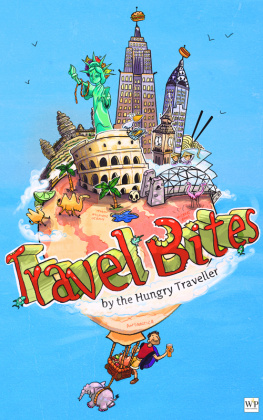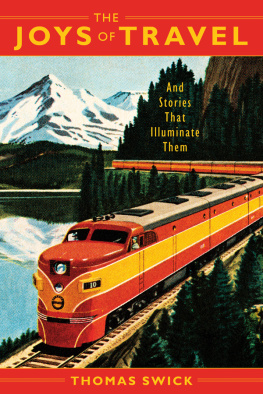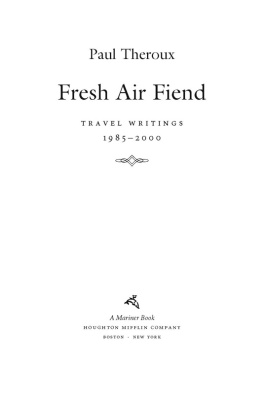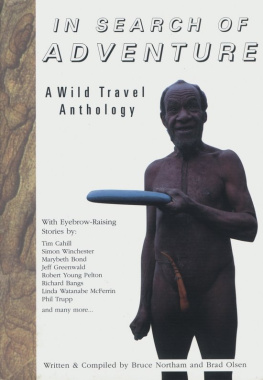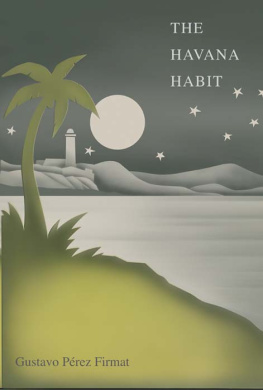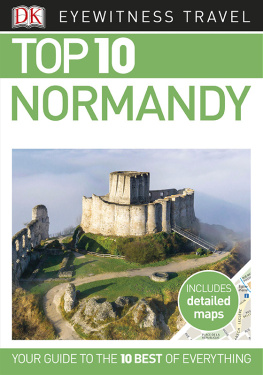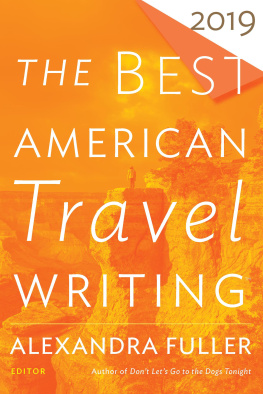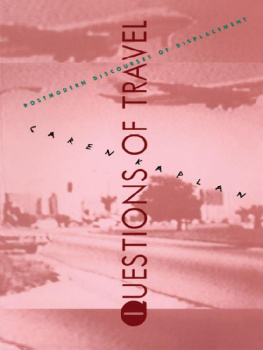DEFINING TRAVEL
DEFINING TRAVEL
DIVERSE VISIONS
Edited by Susan L. Roberson

www.upress.state.ms.us
Copyright 2001 by University Press of Mississippi
All rights reserved
Manufactured in the United States of America
Print-on-Demand Edition

Library of Congress Cataloging-in-Publication Data
Defining travel : diverse visions/edited by Susan L. Roberson.
p. cm.
Includes bibliographical references (p. ) and index.
ISBN 1-57806-411-2 (cloth : alk. paper)
1. Travel. 2. Travelers. I. Roberson, Susan L., 1950
G163 .D44 2001
910.4dc21
2001026905
British Library Cataloging-in-Publication Data available
THIS ONE IS FOR WALLY
CONTENTS
ERIC LEED
DEAN MACCANNELL
ERIK COHEN
JEAN BAUDRILLARD
HLNE CIXOUS
MICHEL BUTOR
MICHEL DE CERTEAU
PAUL FUSSELL
WAYNE FRANKLIN
MARY LOUISE PRATT
HOMI BHABHA
DOREEN MASSEY
EDWARD W. SAID
CAREN KAPLAN
R. RADHAKRISHNAN
THAYER SCUDDER
GUSTAVO PREZ-FIRMAT
GLORIA ANZALDA
WILLIAM BEVIS
CARL PEDERSEN
FARAH JASMINE GRIFFIN
DEFINING TRAVEL: AN INTRODUCTION
Travel, movement, mobilitythese are some of the essential activities of human life. Whether we travel to foreign lands or just across the room, we all journey and from our journeying define ourselves. As philosopher Merleau-Ponty puts it, It is the body in its orientation toward and action upon and within its surroundings that constitutes the initial meaning-giving act (qtd in Young 147). Meaning, definition, identity, and structure, Merleau-Ponty argues are all derived from motility, movement through space. Because as Rockwell Gray says, the essence of human life has been wayfaring (Gray 49), travel is an important metaphor by which we discuss other fundamental activities of life: we speak of our lives as a journey from birth to death and education as the road to knowledge. The journey is the metaphor by which we describe the minds workings, our flights of fancy and imaginative adventures, our Traveling in the unconscious (Cixous 70). Even the word metaphor has meanings of transport, of carrying over, that suggests the restlessness of human nature. As your eyes travel through this introduction, as you read my words going across the page, keep track of how often you get up from this reading to move about the room and refresh yourself from your otherwise stationary task. Then you will have a sense of how basic movement, journeying, travel are to human life and why travel books continue to be among the most popular types of literature.
As will be evident from the many examples the authors of this collection use to illustrate their arguments, travel is a defining element of history and of literature, from the ancients to the moderns. Eric Leed argues that the history of travel is in crucial ways a history of the West (and, we would add, not just of the West) (14), for it defines territories and boundaries, forms communities, and civilizes. He says, Recorded historythe history of civilizationis a story of mobilities, migrations, settlements, of the adaptation of human groups to place and their integration into topography, the creation of homes (4). Indeed, in his essay on American history, George Pierson describes the M-factor of movement, migration, mobility as elemental in the formation of the American character (121), for movement, he argues, connotes change and transformation. And today we are finding that experiences of globalization and transnationalism describe not only economic movements across nations, but new definitions of culture and nationness. Thus, travel and mobility continue as defining elements of history, place, and people.
The ancient stories of Gilgamesh and Odysseus are plotted around the journey, the heroic venture that takes the protagonist (usually a male) out into the worldor sometimes beyond the known world to fantastical placesto test his mental and physical prowess, to gain knowledge of the world beyond the home borders, to achieve selfhood. These stories, like Telemachuss journey to seek news of his father or Gilgameshs search for eternal life, suggest, even as they illustrate its hardships and dangers, that travel is a freeing and transformative experience from which the untested youth emerges a man, with knowledge, confidence and power. They suggest that travel is emancipatory and subversive, again as Telemachus frees himself from his mothers hold and returns to Ithaca set to subvert the will of the suitors. As Leed and others who study myth and the quest motif demonstrate, these are stories of male potencies (Leed 8) marked by the rites of passage: separationinitiationreturn (Campbell 30). These ancient myths assume the sessility, or immobility, of women, the association of the female with place rather than travel. But womens travel is also subversive, even transgressive, for The limitation of womens mobility, in terms both of identity and space, has been in some cultural contexts a crucial means of subordination (Massey 179). Regardless, travel is traditionally seen as transformative and freeing, of promoting change for the individual and for institutions because the traveler gains knowledge not only about the wider world but about the self, making the journey a double voyage of discovery.
While modern travelers may not be able to visit the fantastical places Odysseus visited on his long return homewhich for him was also fraught with hardship, loss, and griefor to linger, entrapped, with the goddess Calypso on her island, we continue to use the word odyssey to describe travel and extended wanderings to unknown and far away places, like the outer reaches of space. At the same time, modern travel is also being defined to account for rapid globalization and the mass migrations and relocations, often forced, not only of individuals but of whole communities, illustrating again that the road can also be a trail of tears. Much critical attention is being focused on the dynamics of postcolonialism, transnationalism, and globalization to examine the effects of imperialism and colonization on both the journeying colonizer and the colonized, the negotiation of cultural identity in the liminal spaces created by movement, and the often nomadic, displaced, diasporic quality of modern (or postmodern) life. Homi Bhabha in The Location of Culture calls this kind of disjunctive global crossing the new internationalism and says of this phenomenon, the demography of the new internationalism is the history of postcolonial migration, the narratives of cultural and political diaspora, the major social displacements of peasant and aboriginal communities, the poetics of exile, the grim prose of political and economic refugees (5). Regardless of the kind of travel one undertakes, some commonalities remain in the defining discussions of travel. As the comment from Bhabha suggests, theorists continue to see the connections between the history of travel and the history of the world, and, as we shall see, discussion of travel continues to circulate around the same key issues: what constitutes travel and the homesite, the role of travel in the formation of identity, and the relations between travel, knowledge, and power.
TRAVEL
Sitting here at my desk composing this introduction, the word travel brings up images of vacation, of getting away from my work and visiting places different from the one in which I live but to which I will return refreshed and ready to get back to the mundane chores of every day. My mind wistfully conjures up imaginary voyages to Paris, Santiago, Santa Fe, perhaps even Uganda. As well, when Paul Fussell speaks of travel, he means travel abroad to foreign lands, the adventures that men (not women) of privilege, freedom, and education engage in and report about in their travel books, which hence take the reader abroad, into the authors brain, and into his own (204). Dean MacCannell likewise sees travel as a touristic event, but he finds that one does not have to go to the other side of the globe but can rather tour society or the social world and its material manifestations. In his account, a visit to Paris will take the tourist not only to historic and cultural sites (the must-sees on anyones itinerary), but to neighborhoods, restaurants, and public works establishments like the Paris sewers. And Jean Baudrillard engages in travel, not so much to visit new places or to find himself, as to erase place and self in an elitist, postmodern blur that questions origins and authenticity. To that extent, Fussell, MacCannell, and Baudrillard define travel in ways familiar to many and in ways that tend to universalize travel around models of pleasure and escape. But the word travel has a multitude of meanings and connotations, not all of romantic tropic islands or exciting foreign cities.
Next page

